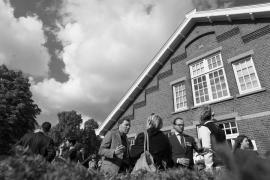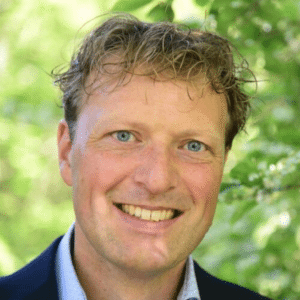 From June 7-9 Utrecht School of Economics (U.S.E.) hosted the inaugural Crowdfunding research week of the European Centre for Alternative Finance (ECAF), co-organized by U.S.E., CrowdfundingHub and Sustainable Finance Lab. 37 researchers from seven European countries spanning 21 organisations contributed to the successful event.
From June 7-9 Utrecht School of Economics (U.S.E.) hosted the inaugural Crowdfunding research week of the European Centre for Alternative Finance (ECAF), co-organized by U.S.E., CrowdfundingHub and Sustainable Finance Lab. 37 researchers from seven European countries spanning 21 organisations contributed to the successful event.
The event marked the start of an international and diverse network of researchers around ECAF. Over the coming period this network is institutionalised by setting up the necessary infrastructure to allow for the exchange of ideas, data and other materials within an Alternative Finance Knowledge Base. Several working groups were formed to continue in-depth collaboration between researchers from several international universities.
[clickToTweet tweet=”ECAF Crowdfunding Research Week Recap #crowdfunding #altfin” quote=”What you missed: European Centre for Alternative Finance Crowdfunding Research Week “]
 The first day inspired the participants by featuring keynotes, a presentation by ECAF director Ronald Kleverlaan about ECAF’s aspirations continued by an introduction of several research areas by renowned international professors. VU Amsterdam Professor Dr. René Bekkers discussed experiments on the role of new forms of financing, covering topics such as crowdfunding for philanthropy and funding arts and culture. University of Trier Professor Dr. Jörn Block reviewed the diverse landscape of newly emerging alternative forms of corporate financing and sketched interesting aspects for future research relevant to ECAF’s agenda.
The first day inspired the participants by featuring keynotes, a presentation by ECAF director Ronald Kleverlaan about ECAF’s aspirations continued by an introduction of several research areas by renowned international professors. VU Amsterdam Professor Dr. René Bekkers discussed experiments on the role of new forms of financing, covering topics such as crowdfunding for philanthropy and funding arts and culture. University of Trier Professor Dr. Jörn Block reviewed the diverse landscape of newly emerging alternative forms of corporate financing and sketched interesting aspects for future research relevant to ECAF’s agenda.
[clickToTweet tweet=”ECAF: #Crowdfunding & #CorporateFinance @crowdfundinside” quote=”ECAF: Perspectives on Crowdfunding & Corporate Finance”]
On Day 2, participants and ECAF representatives discussed crowdfunding mainly from a corporate finance perspective, looking at herding and drivers of investment activities in equity crowdfunding, social networks and social capital as well as the combination of crowdfunding with other forms of entrepreneurial finance. The afternoon allowed for the emergence of working groups and the continuation of the discussion around topics of interest, which included equity crowdfunding, dealing with transaction data gathered from multiple platforms, research on crowdfunding in the creative and cultural sector and for impact/sustainability as well as ‘stacked finance’.
 During the third day, the focus resumed on rewards-based crowdfunding for cultural and creative industries in the Nordic countries while also exploring the interesting institutional context of China. ECAF’s researchers also explained possible avenues of research based on the data already collected. The crowdfunding research week concluded with a session exploring the possibilities of setting up an EU COST action to support the emerging ECAF activities.
During the third day, the focus resumed on rewards-based crowdfunding for cultural and creative industries in the Nordic countries while also exploring the interesting institutional context of China. ECAF’s researchers also explained possible avenues of research based on the data already collected. The crowdfunding research week concluded with a session exploring the possibilities of setting up an EU COST action to support the emerging ECAF activities.
Similar events will be organized in the coming years. To support the collaboration, present researchers aim to acquire external funding and further grow the network.

